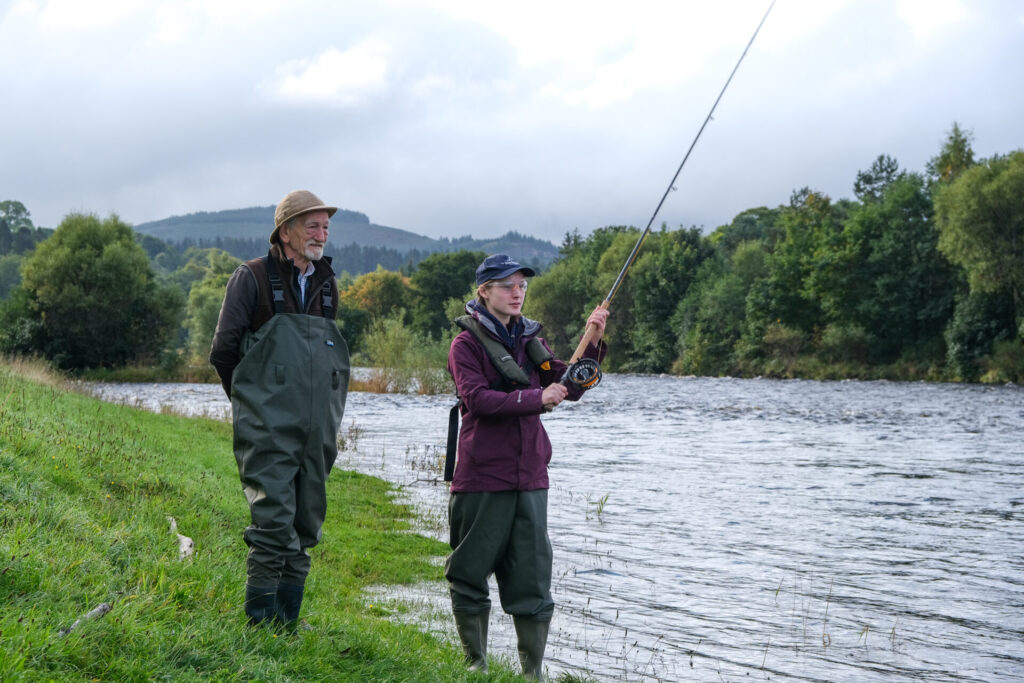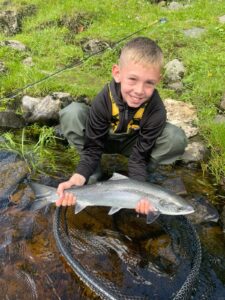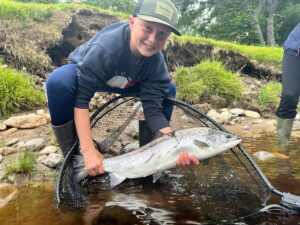One of the important objectives of the Spey Fishery Board is to promote understanding of its various initiatives through an education programme.
Our programme is offered to 3 primary schools within the River Spey catchment area each year and raises awareness of the importance of the river to the local communities of Highland and Moray.
Over a number of school visits, pupils learn about the lifecycle of the Atlantic Salmon, including the issues involved in its declining numbers. They also learn about activities and projects designed to mitigate against this decline, the geographical aspects of the river, and its importance to the local economy.
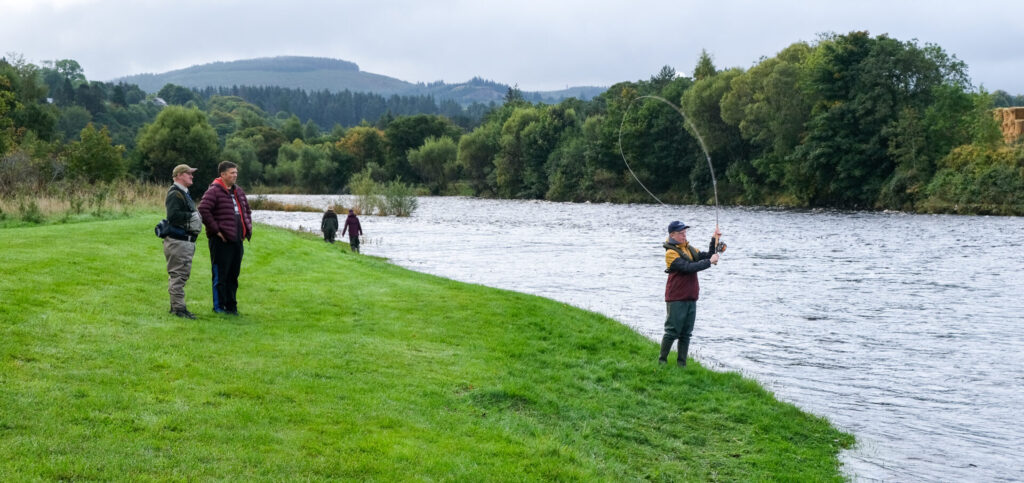
As a new development and expansion of its programme the Spey Fishery Board, in partnership with the River Spey Anglers Association and Upper Arndilly Fishings is providing an angling and rural skills experience for pupils in S3 at Speyside High School. With the average of anglers increasing how we encourage young people to get into angling? Furthermore, what opportunities are there for them to access angling? As well as supporting the development of key life skills in areas such as communication, self- esteem and resilience this two day course has the following aims:-
- To inform young people about The Atlantic Salmon, its lifecycle, distribution, and the problems currently facing this iconic species.
- To inform young people about the importance of the River Spey to the local area of Moray, including geographical and economic aspects.
- To introduce young people to electro-fishing to sample salmonid and other species living in the River Spey.
- To learn about invertebrates through kick sampling and identification.
- To introduce 8 young people to the sport of fly fishing for salmon.
- To develop awareness of occupations directly connected to the river through hearing at first-hand from those who work there.
This course took place on Wednesday 28th and Thursday 29th September and the 8 pupils who took part enjoyed a full and varied programme of on and off river activities. Despite the pools being full of fish, hooking one proved difficult, although one youngster managed to catch a brown trout. Clearly such a course would not be possible without considerable expert volunteer support and the angling coaches did a great job in teaching the pupils the various spey casts. At the end of the two days all pupils were putting out a decent line. Thanks to Ross Macdonald from LOOP Tackle for his excellent demonstration and coaching support, and indeed all the coaches for their support and encouragement of the pupils.
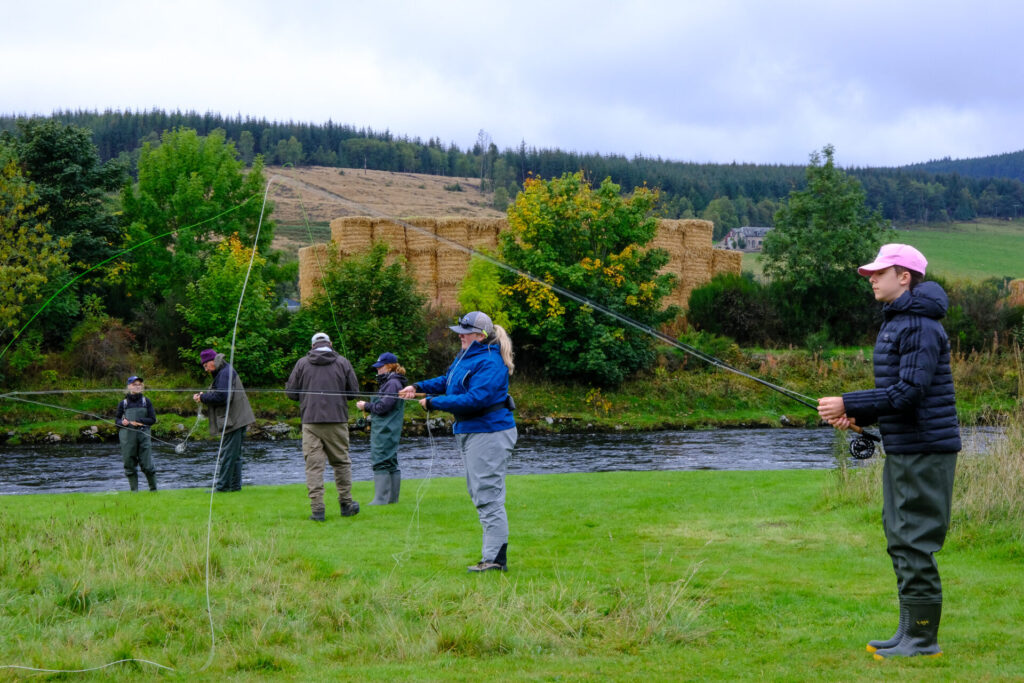
Thanks also to the Spey Board Staff who took time out from their ongoing work to talk to the pupils about their jobs. Unfortunately the river height meant that the electro-fishing couldn`t take place but Atticus Albright, the Spey Biologist, gave the pupils an excellent overview of the equipment and the reasons for monitoring fish populations across the catchment. Richard Whyte, Head Bailiff, talked about the law and his role in preventing poaching on the river and in the marine environment. Richard also spoke about broodstock capture, the hatchery, and stocking with eyed ova and unfed fry. Paul Hughes, Digital Marketing Manager, talked about his role in using technology to publicise various projects, such as habitat restoration and the campaign to Release the Spey, in terms of water extraction.
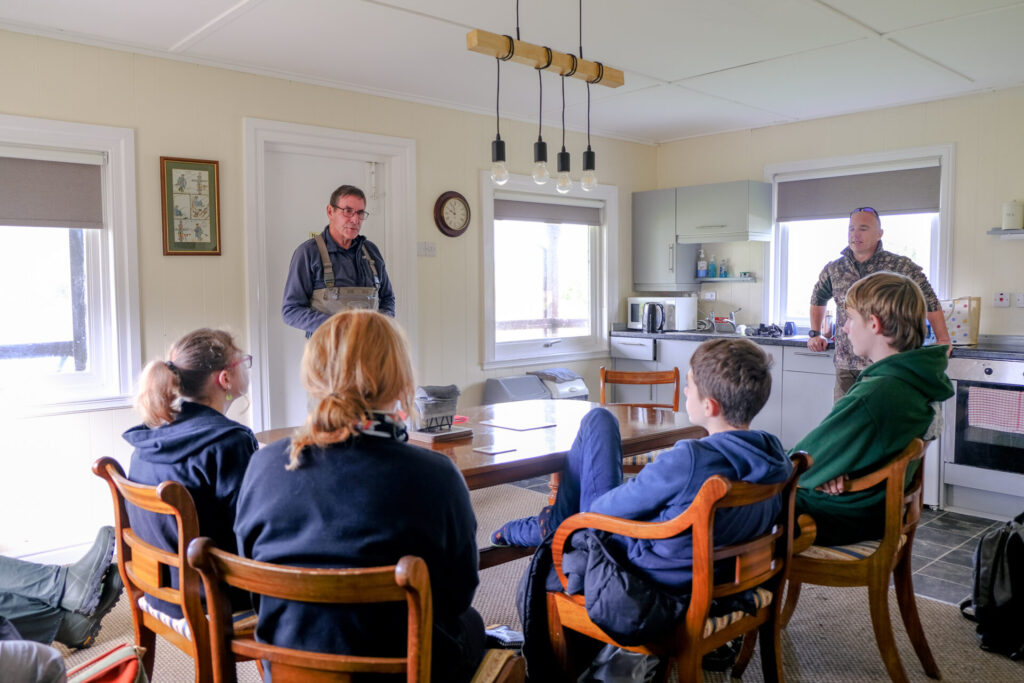
The pupils also enjoyed a range of activities including a fly-tying demonstration by Sandy Howie, setting up rods and reels, leaders and knot tying, and target casting.
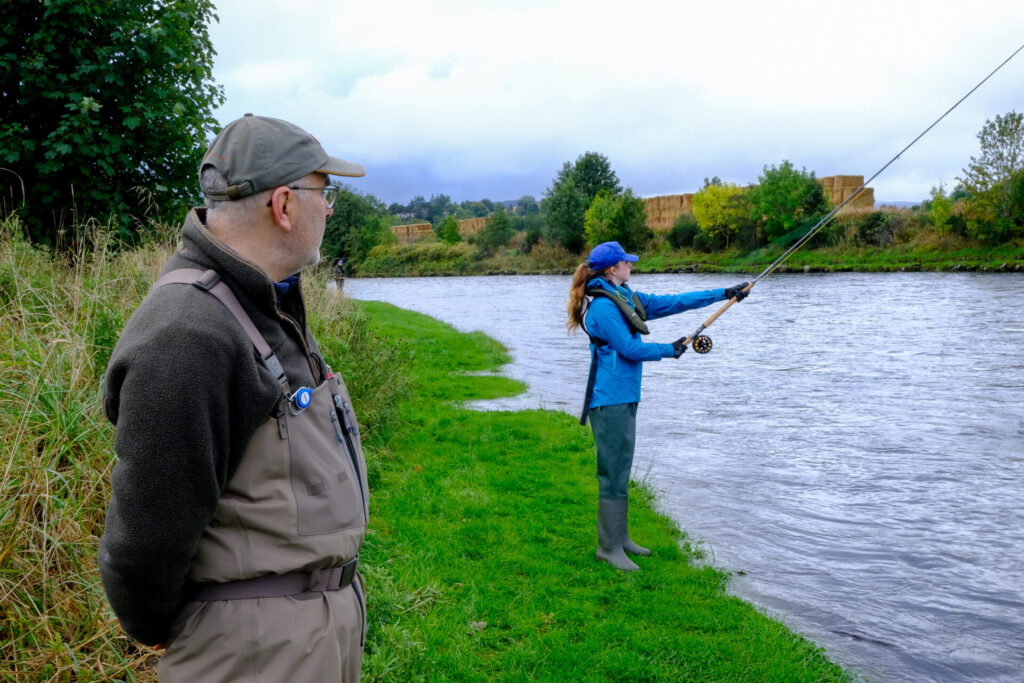
Thanks to Callum Robertson for providing access to Upper Arndilly for this course- hopefully we will see some of these young people out fishing next season- and congratulations to Peter Green, one of the coaches, who caught a 15lb hen fish on the last afternoon.
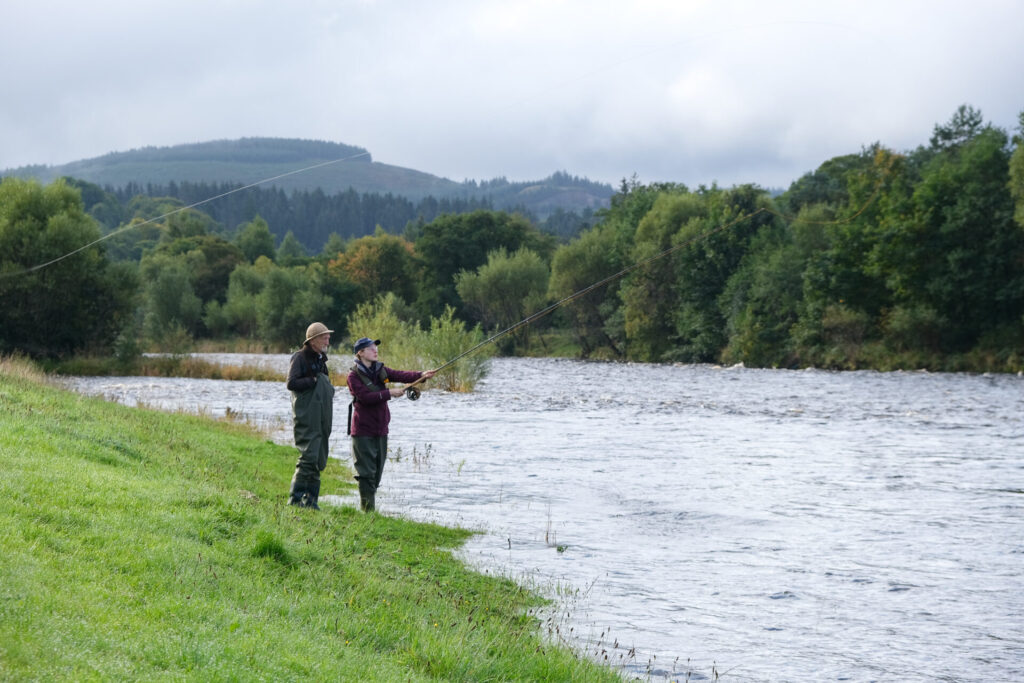
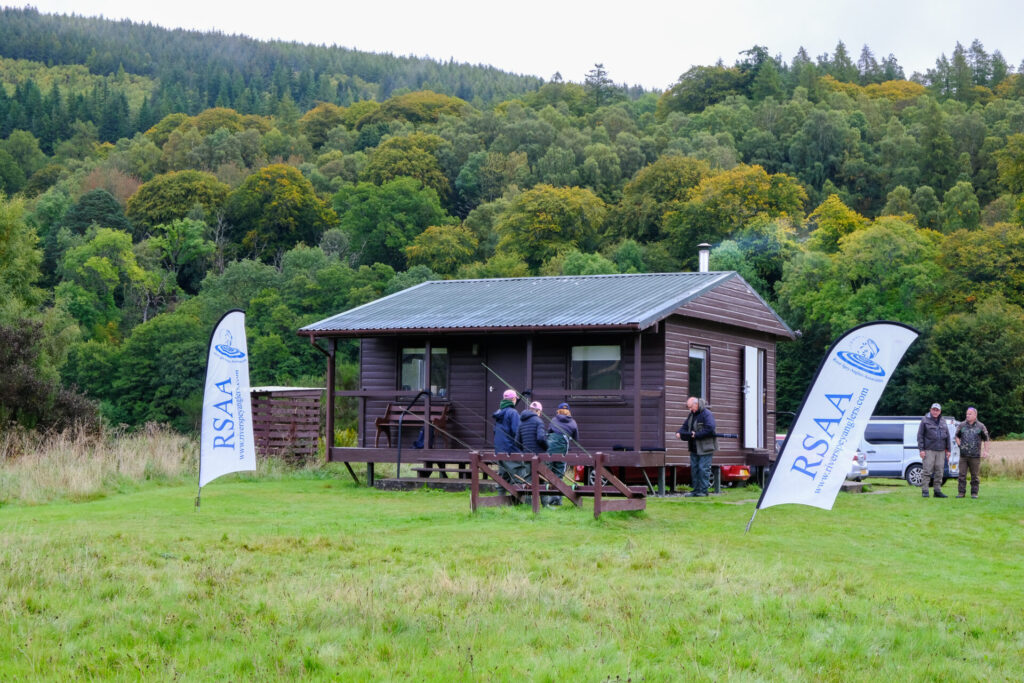
Article Author: John Trodden.
